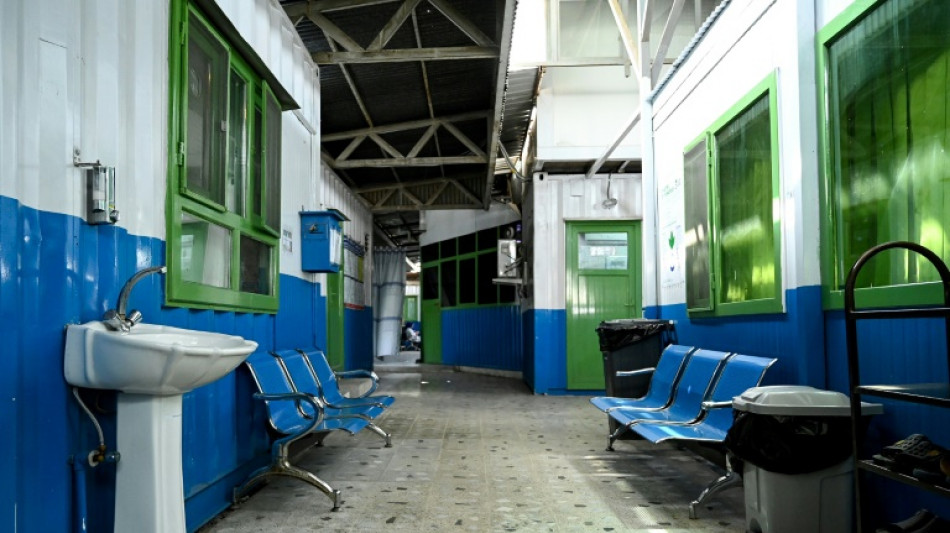
CMSC
-0.0100

At a malnutrition treatment centre in Afghanistan's capital, the cries of children have given way to a heavy silence, as patients are turned away and medical staff laid off due to US aid cuts.
Entirely funded by Washington, the project had to shut down when the United States -- until recently the largest aid donor in Afghanistan -- froze all foreign assistance.
The many children who would have come to the centre won't be treated now, said Cobi Rietveld, country director for the non-governmental organisation Action Against Hunger (ACF), which manages the clinic in the west of Kabul.
"If they don't get treatment, there's an extreme high risk of dying," she told AFP.
Without new funding, the stuffed animals, toys and baby bottles were put away and the pharmacy locked when the last patient left in March.
"When malnourished patients come to our clinic, it's a big challenge for our staff to explain the situation to them and to tell them that they need to go elsewhere for proper treatment," said chief doctor Farid Ahmad Barakzai.
After four decades of war and crises, Afghanistan faces the second-largest humanitarian crisis in the world, behind war-torn Sudan, according to the UN.
- 'So many shocks' -
On average, 65 children suffering from severe acute malnutrition with complications were treated at the clinic every month.
They stay there for several days with their mothers not only to be fed but to prevent them from spiralling into illness.
"Every infection a child can get, a malnourished child will get as well, with an increased risk of dying," said Rietveld.
It's "painful" for the staff, finishing their last days of work, Rietveld added, because "they have to send them somewhere else where they don't have the same specialized treatment".
Child malnutrition in Afghanistan, where 45 percent of the population is under 14 years old, is one of the most significant challenges because it affects entire generations in the long term.
Some 3.5 million children under the age of five suffer from acute malnutrition and the country has one of the highest rates of stunting in the world, according to the UN.
Adults are also affected: 15 million Afghans are currently food insecure, including 3.1 million who are already on the brink of famine.
Last week, the World Food Programme said the United States had ended funding for its work in Afghanistan, having gone back on cuts to other countries.
"This is a country that's been through so many shocks," the World Health Organization representative in Afghanistan, Edwin Ceniza Salvador, told AFP.
"So with a fragile system, even basic care of screening, those are even not there," he said, underscoring that "of course the most vulnerable are the most affected".
- 'Only place we could work' -
The funding crisis has also led to numerous layoffs in the humanitarian sector, in a country where the unemployment rate reached 12.2 percent in 2024, according to the World Bank.
Since the US cuts, ACF has had to lay off around 150 of its 900 staff.
"I have crying people in my office," said Rietveld. "We listen, we offer support, but we can't get them a job."
Hit hardest by the layoffs were women, who made up the majority of the 40 staff at ACF's child nutrition centre and who face severe restrictions imposed by the Taliban authorities since their return to power in 2021.
They can no longer work in many sectors and are not allowed to study beyond primary school, unless they enrol in a religious school, leading the UN to label the system as "gender apartheid".
"For many of us, the only place we could work was in this health centre," said 27-year-old nurse Wazhma Noorzai. "Now, we are losing even that."
To recover after the loss of US funding, which made up 30 percent of the ACF's local budget, the organisation is "in the process of writing proposals" and "discussing with donors", Rietveld said.
"But I don't think other donors can cover the gap."
N.Kratochvil--TPP